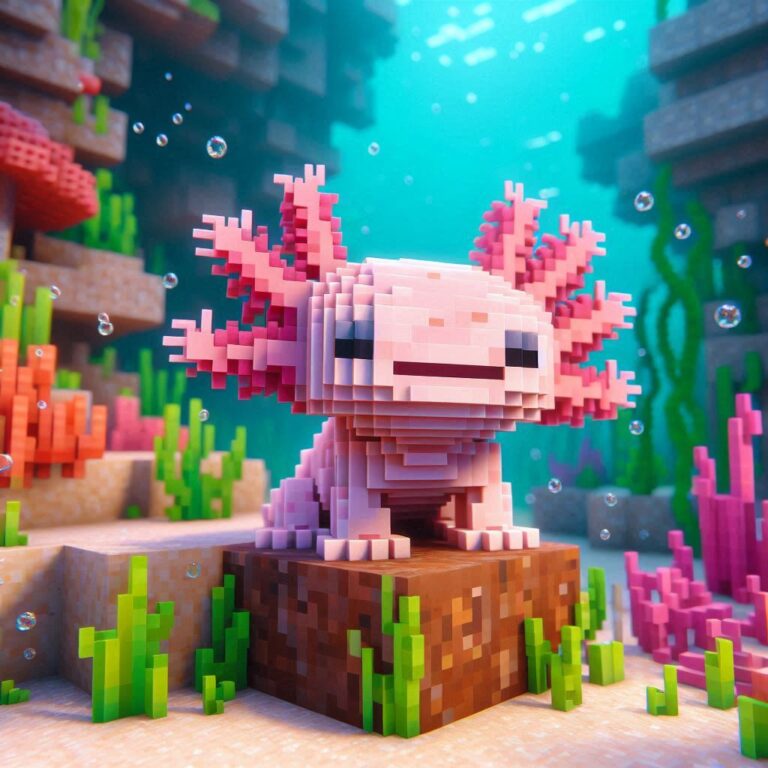
Axolotls are primarily carnivorous amphibians known for their unique dietary requirements. While they possess a voracious appetite and may exhibit curiosity towards various food items, dog food should not be considered a suitable dietary option for axolotls. Dog food lacks the essential nutrients, such as calcium and other micronutrients crucial for axolotl health and development. Feeding axolotls dog food as a primary diet can lead to various health issues, including digestive problems, nutritional deficiencies, and potential toxicity from harmful additives. Therefore, it is imperative for axolotl owners to provide a well-balanced diet consisting of live or frozen foods tailored to meet the specific nutritional needs of these fascinating creatures.
What does dog food do to the axolotl?
Dog food, while designed to meet the nutritional needs of canines, lacks the essential nutrients crucial for axolotl health. When axolotls consume dog food, it can lead to a range of adverse effects on their well-being. Firstly, the composition of dog food may not align with the dietary requirements of axolotls, resulting in digestive issues. Additionally, dog food often contains additives and preservatives that can be harmful to axolotls, causing toxicity and disrupting their delicate internal balance. Furthermore, the lack of proper nutrients in dog food can lead to malnutrition in axolotls over time, affecting their overall health and vitality. Thus, feeding axolotls dog food can have detrimental consequences and should be avoided to ensure their optimal health and longevity.
Digestive Issues
One of the most immediate concerns associated with feeding axolotls dog food is the onset of digestive issues. Axolotls have delicate digestive systems adapted for processing live or frozen prey items in their natural habitat. When presented with dog food, which often contains fillers and additives, axolotls may struggle to digest it properly. This can lead to gastrointestinal discomfort, bloating, constipation, or diarrhea in axolotls. Moreover, the consumption of inappropriate food can disrupt the balance of beneficial bacteria in their gut, further exacerbating digestive problems. To maintain the health of axolotls’ digestive systems, it’s crucial to provide them with a diet consisting of foods that mimic their natural prey items, such as bloodworms, brine shrimp, and small fish.
Nutritional Deficiencies
Dog food lacks the specific nutrients that axolotls require for optimal health and growth. Axolotls, being carnivorous amphibians, have distinct nutritional needs, particularly for proteins, fats, vitamins, and minerals. Dog food may not provide adequate levels of these essential nutrients, leading to nutritional deficiencies in axolotls over time. Calcium deficiency is a particular concern, as axolotls require sufficient calcium for bone development and muscle function. Without proper nutrition, axolotls may experience stunted growth, weakened immune systems, and skeletal deformities. To prevent nutritional deficiencies, axolotl owners should offer a diverse diet consisting of appropriately sized live or frozen prey items supplemented with calcium and other essential nutrients as needed.
Altered Growth Patterns
Feeding axolotls dog food can disrupt their natural growth patterns and development. Axolotls are known for their remarkable ability to regenerate lost body parts, but this process relies heavily on proper nutrition. Dog food, lacking essential nutrients and potentially containing harmful additives, can hinder the growth and regeneration processes in axolotls. Without adequate nutrition, axolotls may exhibit slowed growth, delayed maturation, and reduced vitality. Additionally, the imbalance of nutrients in dog food can lead to abnormal bone development and skeletal deformities in axolotls. Therefore, it’s crucial for axolotl owners to provide a well-balanced diet tailored to their specific nutritional needs to support healthy growth and development throughout their lives.
Nutritional Value of Dog Food for the Axolotl
Dog food, while formulated to meet the dietary needs of dogs, often lacks the appropriate nutritional profile for axolotls. Unlike dogs, axolotls are carnivorous amphibians with specific dietary requirements. While some dog foods may contain proteins, fats, and carbohydrates, they may not be in the right proportions or forms suitable for axolotl health. Axolotls require a diet rich in animal proteins, essential fats, and minimal carbohydrates to thrive. Therefore, relying on dog food alone to meet the nutritional needs of axolotls can result in deficiencies and health issues over time.
Protein Content
Protein is a vital component of an axolotl’s diet as it provides essential amino acids necessary for growth, maintenance, and repair of bodily tissues. While dog food may contain protein sources such as chicken, beef, or fish, the protein content might not be sufficient or appropriate for axolotls. Moreover, some dog foods may contain plant-based proteins or fillers that axolotls cannot digest effectively. Insufficient protein intake can lead to stunted growth, weakened immune systems, and reduced vitality in axolotls. Therefore, it’s essential for axolotl owners to ensure that the protein content in their pet’s diet comes from animal sources and meets their specific nutritional requirements.
Fat Content
Fat is another crucial component of an axolotl’s diet, providing energy and essential fatty acids necessary for various physiological functions. While dog food may contain fats from animal or plant sources, the fat content and composition may not be suitable for axolotls. Axolotls require moderate amounts of fat, particularly omega-3 and omega-6 fatty acids, for proper growth and development. However, excessive fat intake or an imbalance of fatty acids can lead to obesity, liver problems, and other health issues in axolotls. Therefore, it’s essential for axolotl owners to choose dog foods with appropriate fat content and supplement their pet’s diet with additional sources of healthy fats as needed.
Carbohydrate Content
Carbohydrates are not a significant part of an axolotl’s natural diet, as they are primarily carnivorous amphibians. While some dog foods may contain carbohydrates from grains, vegetables, or fruits, axolotls do not have the enzymes necessary to digest plant matter efficiently. Excessive carbohydrate intake can lead to digestive issues, bloating, and nutrient imbalances in axolotls. Therefore, axolotl owners should select dog foods with minimal carbohydrate content and focus on providing their pets with a diet rich in animal proteins and fats to ensure their optimal health and well-being.
Is Dog Food Poisonous for the Axolotl?
While dog food is not inherently poisonous to axolotls, it can pose significant risks to their health if consumed regularly or in large quantities. One of the primary concerns with feeding axolotls dog food is the presence of harmful additives, chemical preservatives, and inappropriate ingredients that can have adverse effects on their well-being. While some dog foods may contain nutritionally beneficial ingredients, others may contain fillers, artificial colors, flavors, and other additives that axolotls cannot metabolize effectively. Over time, exposure to these substances can lead to toxicity, digestive issues, and other health problems in axolotls. Therefore, it’s essential for axolotl owners to carefully scrutinize the ingredients in dog food before offering it to their pets and to avoid relying on it as a primary dietary source.
Harmful Additives
Many commercially available dog foods contain a variety of additives and artificial ingredients that can be harmful to axolotls if ingested. These additives may include artificial colors, flavors, and preservatives such as BHA, BHT, and ethoxyquin, which have been linked to various health problems in animals. Additionally, some dog foods may contain flavor enhancers and texturizers that can cause digestive issues or allergic reactions in axolotls. Therefore, axolotl owners should opt for dog foods with minimal additives and prioritize natural, whole-food ingredients to minimize the risk of harm to their pets.
Chemical Preservatives
Chemical preservatives are commonly used in dog food to extend its shelf life and prevent spoilage. However, many of these preservatives can be harmful to axolotls if consumed regularly. For example, ethoxyquin, a common preservative found in some dog foods, has been associated with liver and kidney damage in animals. Similarly, BHA and BHT, which are often used to preserve the fat content in dog food, have been linked to cancer and other health issues. Axolotl owners should be cautious when selecting dog foods and choose options that are free from chemical preservatives to protect the health of their pets.
Inappropriate Ingredients
Inappropriate ingredients in dog food can also pose risks to axolotls if ingested regularly. Some dog foods may contain ingredients that axolotls cannot digest effectively or that do not meet their nutritional needs. For example, dog foods containing large amounts of grains or plant-based proteins may be difficult for axolotls to process and can lead to digestive issues or nutrient deficiencies. Additionally, certain ingredients commonly found in dog food, such as onions, garlic, and xylitol, are toxic to axolotls and should be avoided at all costs. Axolotl owners should carefully read the ingredient labels on dog food packaging and choose options that contain high-quality, species-appropriate ingredients to ensure the health and well-being of their pets.
What to Do If You Feed Dog Food to Your Axolotl?

Feeding dog food to your axolotl can be a cause for concern, but there are steps you can take to mitigate any potential harm. If you accidentally feed dog food to your axolotl or if it consumes dog food without your knowledge, it’s important to act promptly to ensure its well-being. Monitoring your axolotl’s behavior closely, adjusting its diet accordingly, and seeking advice from a veterinarian are crucial steps to take in such situations.
Monitor Axolotl Behavior
After feeding dog food to your axolotl, closely observe its behavior for any signs of distress or abnormality. Look out for symptoms such as lethargy, loss of appetite, unusual swimming patterns, or changes in skin coloration. If you notice any of these signs, it could indicate digestive issues, nutritional deficiencies, or toxicity from harmful additives in the dog food. By monitoring your axolotl’s behavior closely, you can identify any potential problems early and take appropriate action to address them.
Adjust Diet Accordingly
If you have mistakenly fed dog food to your axolotl, it’s essential to adjust its diet immediately to ensure it receives proper nutrition. Transition your axolotl back to a diet consisting of live or frozen foods that are suitable for its species and nutritional needs. Offer nutritious options such as bloodworms, brine shrimp, and small fish to help replenish any missing nutrients and support its overall health. Additionally, consider supplementing its diet with calcium or other essential nutrients to help offset any deficiencies caused by the dog food.
Consult a Veterinarian
If you’re unsure about how to proceed or if you notice any concerning symptoms in your axolotl after feeding it dog food. Don’t hesitate to consult a veterinarian who specializes in exotic pets. A veterinarian can provide expert guidance tailored to your axolotl’s specific needs and circumstances. They can assess your axolotl’s health, recommend appropriate dietary changes or supplements, and offer treatment if necessary. Seeking professional veterinary care ensures that your axolotl receives the best possible care and can help prevent any potential health issues from worsening. Remember, it’s always better to seek advice from a qualified expert rather than attempting to address the problem on your own.
FAQs
Q. Can axolotls eat dog food as their primary diet?
A. No, axolotls should not be fed dog food as their primary diet. It lacks essential nutrients specific to axolotl health.
Q. What nutrients are lacking in dog food for axolotls?
A. Dog food typically lacks sufficient levels of calcium and other essential nutrients crucial for axolotl health.
Q. Can occasional feeding of dog food harm axolotls?
A. Occasional feeding of dog food might not cause immediate harm. But it can lead to long-term health issues due to imbalanced nutrition.
Q. How often can axolotls be fed dog food?
A. Axolotls should not be regularly fed dog food. It’s recommended to avoid it altogether or use it sparingly as an occasional treat.
Q. Are there specific types of dog food safer for axolotls?
A. While some dog foods may contain fewer harmful additives, none are considered suitable as a staple diet for axolotls.
Q. Can axolotls eat canned dog food?
A. Canned dog food poses similar risks as dry dog food and should not be fed to axolotls regularly.
Q. What are the signs of dog food-related issues in axolotls?
A. Signs include digestive distress, abnormal behavior, lethargy, and physical deformities due to nutritional deficiencies.
Q. Are there alternative foods better suited for axolotls?
A. Yes, axolotls thrive on a diet of live or frozen foods such as bloodworms, brine shrimp, and small fish.
Q. Should axolotls be supplemented with vitamins if fed dog food?
A. While supplementation might help mitigate some deficiencies, it’s not a substitute for a balanced diet tailored to axolotl needs.
Q. What should I do if my axolotl accidentally consumes dog food?
A. Monitor its health closely for any signs of distress and consult a veterinarian if any issues arise. Adjust its diet back to suitable axolotl foods as soon as possible.
Conclusion
In conclusion, while the temptation to feed dog food to axolotls may arise, it’s crucial to prioritize their health and well-being by offering a diet tailored to their specific nutritional needs. Dog food lacks the essential nutrients required for axolotl health and can lead to a host of issues, including digestive problems, nutritional deficiencies, and toxicity from harmful additives.
If you’ve accidentally fed dog food to your axolotl, it’s important to act swiftly by monitoring its behavior, adjusting its diet to include suitable foods, and seeking guidance from a veterinarian if needed. By providing axolotls with a balanced diet consisting of live or frozen prey items and avoiding reliance on dog food, axolotl owners can ensure the long-term health and vitality of their beloved aquatic companions.

Hassan Shah carries over four years of hands-on expertise in caring for axolotls, guided by his cherished companion ‘Little Bruno,’ a thriving axolotl under his attentive care for three years.



